-
About
- About Listly
- Community & Support
- Howto
- Chrome Extension
- Bookmarklet
- WordPress Plugin
- Listly Premium
- Privacy
- Terms
- DMCA Copyright
- © 2010-2025 Boomy Labs


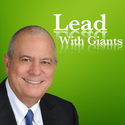 Dan Forbes
Dan Forbes
Listly by Dan Forbes
I asked the #LeadWithGiants Community this question: What book is a must read for Leaders?
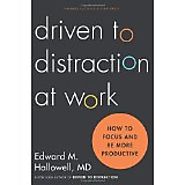
If you are looking to be more productive at work, this may be a great resource for you. In it the author looks at things like Screen Sucking, Multitasking, Idea Hopping, Worrying, Playing the Hero and Dropping the Ball as processes that can inhibit our ability to be productive. After discussing them he goes on to provide some practical tips on how we can adjust and possibly eliminated some of the offensive issues.
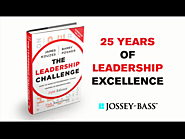
The Leadership Challenge: How to Make Extraordinary Things Happen in Organizations [James M. Kouzes, Barry Z. Posner] on Amazon.com. FREE shipping on qualifying offers. The 25th anniversary edition of the bestselling business classic, completely revised and updated For more than 25 years
For every action and reaction we have a response that manifests in our body. This book gives insight into building awareness of our own bodies and how we carry ourselves. Our posture and expression can tell more about us than we realize. Techniques are shared that enable leaders to respond rather than react and improve collaboration.
Great book that hold a leader accountable for his own growth!



John Maxwell's lastest and perhaps most practical book for leaders of all organizations. Filled with a lot of practical advice.

NO: The Only Negotiating System You Need for Work and Home
Jim Camp
This amazing book reminds us every interaction is a negotiation.

DRIVE: The Surprising truth About What Motivates Us
Daniel Pink
In his own Twitter summary: Carrots & Sticks are so last Century. Drive says for 21st century work, we need to upgrade to autonomy, mastery and purpose.
This Business Read is an epiphany of how to motivate your team. It counters most everything we have been taught and reveals some ground-breaking insight.

“The Dip:
A LITTLE BOOK THAT TEACHES YOU WHEN TO QUIT (AND WHEN TO STICK)”
by
SETH GODIN
A blog that became a bestseller!
Godin’s primary basis of the book is to counter Vince Lombardi’s famous quote “Quitters never win and winners never quit.” He openly states this is horrible advice because winners quit…they quit the right ventures at the right time!
Through use of ‘the dip,’ ‘the cul-de-sac,’ and ‘the cliff,’ he explains how to know what to quit and when. These are crucial leadership principles for every aspect of our lives.

QBQ! by John G. Miller is a motivational primer aimed at purging the "blame, complaining, and procrastination" from the workplace. Miller believes that one of the hallmarks of today's business culture is a lack of personal accountability; he prescribes the cure in this series of short stories and personal observations drawn from his years of experience running his organizational development firm. / Recommended by By Christina Parr

Challenge of Command (West Point Military History Series) [Roger H. Nye] on Amazon.com. FREE shipping on qualifying offers. An insightful combat-arms officer, Colonel Nye has produced a one-of-a-kind tool for the professional officer who intends to master his profession. A handbook for mentors as well as junior officers. / Recommended by By Col Mustafa "Kujo" Koprucu

When top executives sit down to write a book, the result is often a celebratory memoir or an upbeat treatise on how you can emulate their success. Bill George has chosen to produce neither, and readers are the luckier for it. - Recommended by Camille Leger

Trust is so integral to our relationships that we often take it for granted, yet in an era marked by business scandals and a desire for accountability this book by leadership expert Covey is a welcome guide to nurturing trust in our professional and personal lives. - Recommended by Rick Earnshaw
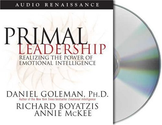
Business leaders who maintain that emotions are best kept out of the work environment do so at their organization's peril. Bestselling author Daniel Goleman's theories on emotional intelligence (EI) have radically altered common understanding of what "being smart" entails, and in Primal Leadership, he and his coauthors present the case for cultivating emotionally intelligent leaders. - Recommended by Scott Lekan

In 1957, the Russians launched Sputnik and the ensuing space race. Three years later, Gene Kranz left his aircraft testing job to join NASA and champion the American cause. What he found was an embryonic department run by whiz kids (such as himself), sharp engineers and technicians who had to create the Mercury mission rules and procedure from the ground up.

by Daniel Pink; Recommended by Chris Stricklin.

Kathryn D. Cramer Author Q&A - Kathy Cramer, Lead Positive What is Asset-Based Thinking (ABT)? Asset-Based Thinking can be defined as a focus on what is working within yourself, others, and situations. With practice, ABT strategies can help reverse our brain's negativity bias and strengthen those parts of the brain responsible for focusing on the upside of whatever is happening. / Recommended by dan Forbes
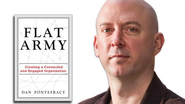
Great book discussing ways to apply a flat form of management that makes sense.

by Robert Cialdini; Recommended by Matt Barney

by David Marquet; Recommended by Tom Barron.

by Chris Ernst and Donna Chrobot-Mason; Recommended by Liz Stincelli

by Warren Bennis; Recommended by Calvin Beyers

by Gary McIntosh & Samuel D. Rima; Recommended by Tony Richards
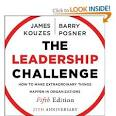
by Kouzes and Posner: Recommended by Dan Forbes
